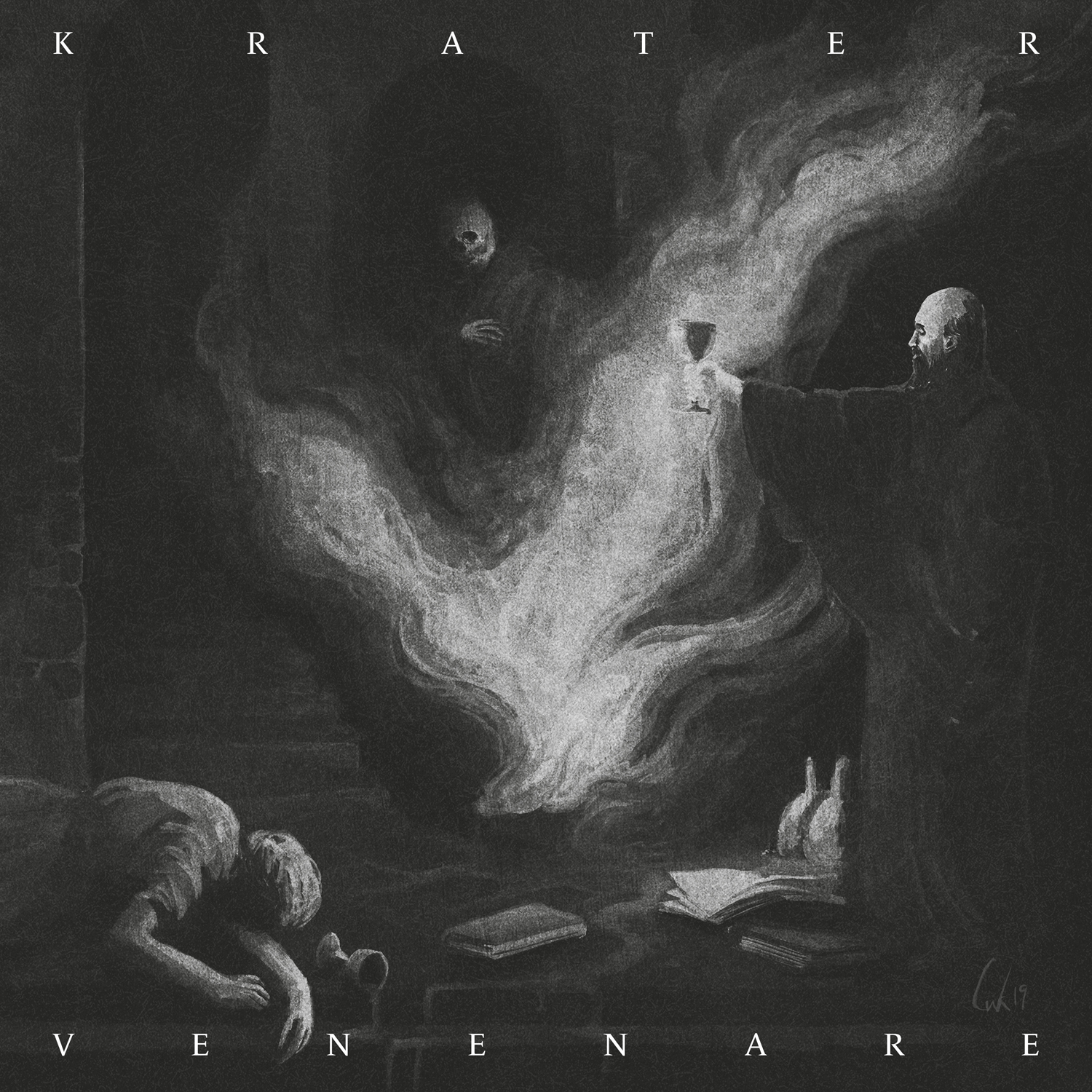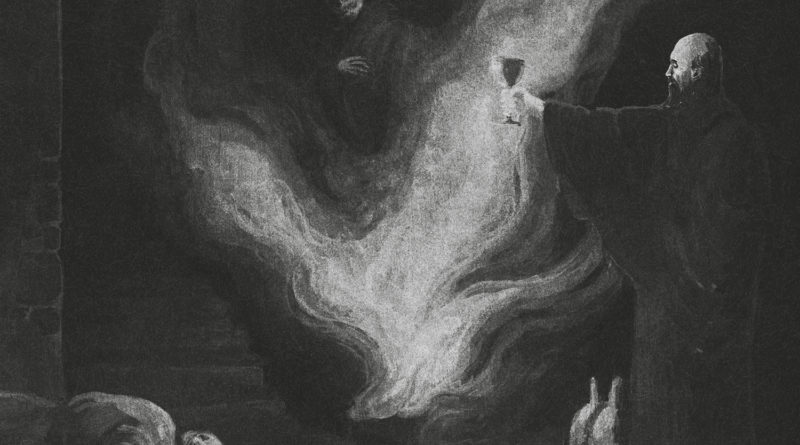ALBUM REVIEW: Venenare – Krater
Venenare marks KRATER‘s fourth full-length release, arriving sixteen years into their tenure. Clearly, they are not a band inclined to rush out new material for the sake of it. This will be their second album, following Urere, to bear the illustrious Eisenwald name; an independent record label based in Germany, which has earned an esteemed reputation curating a modest selection of some of the finest black metal bands in Europe and beyond, whose alumni include ALDA, AGALLOCH and DRUDKH. In other words, there is every indication ahead of listening that Venenare promises to be a refined representation of the black metal style.
The band take their name from an ancient Greek vessel, in which wine was diluted with water to be shared at symposia. The title is befitting, since KRATER mix the intoxicating speed and nihilistic angst of black metal with dilutants drawn from across extreme metal: you will hear the odd late heavy metal flourish here and there, the percussive tonality of death metal in drum fills and perhaps a few indulgent pieces of shredding. While this threatens the purity of the black metal formula so conceived, these additives serve to enhance KRATER‘s message of misanthropy and nihilism, borne from our fundamental alienation from the world.
The most striking element in Venenare is the superb melodic sensibility of the guitarists, credited as Ibbur, 3E.3 and Z.K.. Some passages sound as though they could have been taken straight from Jon Nödtveidt‘s notebook, while others draw upon influences far beyond the black metal pantheon. This album is so rich in melodic ideas, and so incredibly reluctant to repeat itself, that there is barely a lull in interest across it’s fifty-minute length. To be sure, motifs emerge within songs and re-appear later, but this merely serves to demonstrate that KRATER have reached a point of maturity in their song writing where individual pieces are understand as constituents of a more coherent whole. The seamless ebb-and-flow of Venenare gives the impression that the album was originally conceived as one grand opus before being divided into singular movements, though the band have commented that this is not the case: the overall coherence of the album, we are told, emerged within the recording process itself.
Abortio‘s vocal performance on Venenare is also noteworthy for its versatility, as he alternates between throaty snarl, breathless barking and bellowed chants in adjustment to the overall timbre of the passage. Vocals are often double-tracked to give the impression of depth and to blend the timbre of these vocal styles; a convenient segue to praise the production on the album, which is excellent. The album was re-amped, before being mixed and mastered using analogue techniques by Greg Chandler, of ESOTERIC fame. The overall effect is a precise production which allows the guitars to present melodies clearly and distinctly, whilst maintaining a warm and organic texture. Precision, clarity and warmth are not words traditionally associated with black metal production, but they are – in this case – apposite to the task in hand. Shardik‘s drumming performance on this album is also to be praised; firstly, for its commitment to a relentless tempo – tying together the other elements within its frenetic maelstrom – but also for punctuating itself with tight fills and some cymbal work.
As a coherent body of work, Venenare exhibits a definite emotive trajectory: Eruption accelerates towards the break-neck pace of Prayer for Demise, punctuated by staccato rests, before the mid-album celebration of melody arrives in Zwischen den Worten (Between the Words), maintaining itself through the speed and chanting of Stellar Sparks before reaching a plateau in When Thousand Hearts, which could easily pass as a lost track from DISSECTION‘s Storm Of The Light’s Bane. Atmet Asche (Breathing Ash) brings a halt to the exhausting pace, and is where listener’s will find KRATER‘s wider circle of influence leaving an impression, before the more straightforward No Place For You leads into centrepiece Darvaza Breeds, which takes its name from a gas crater in Turkmenistan – colloquially known as the ‘Gate of Hell’. Wasted Carbon offers mournful solace, as Venenare draws to a close: the richness and complexity of the album invites relistening, and as with many great works, it is only afterwards that you can become more cognisant of what you have just experienced.
Venenare will appeal to an audience which welcomes melody and longform execution, but may disappoint fans of their previous work in their subtle divergence from a more traditional black metal formula.
Rating: 7/10

Venenare is out now via Eisenwald.
Like KRATER on Facebook.

